A single email sent me spiraling. The impact was perhaps exacerbated by the jarring juxtaposition of where I had been, and where I was: service had just returned after a river trip. These two parts of myself—the river rat and the freelance business owner—felt as disparate as separate lives.
Before the email, nine of us had been playing a rousing game of Contact in the back seats of the 12-passenger shuttle van. We were laughing as we challenged each other in the collaborative but competitive speed game of words. We were present and engaged. And why wouldn’t we be? We had just shared a profound experience.
We had been moved in all the ways one is moved by time on the water, time out of service, away from the stress of our everyday lives. There was connection and bonding and relaxation and thrill. There was even a little bit of trial, successfully navigated. We knew each other in ways unimaginable a week or two prior. Of course we were playing Contact in the back seats.
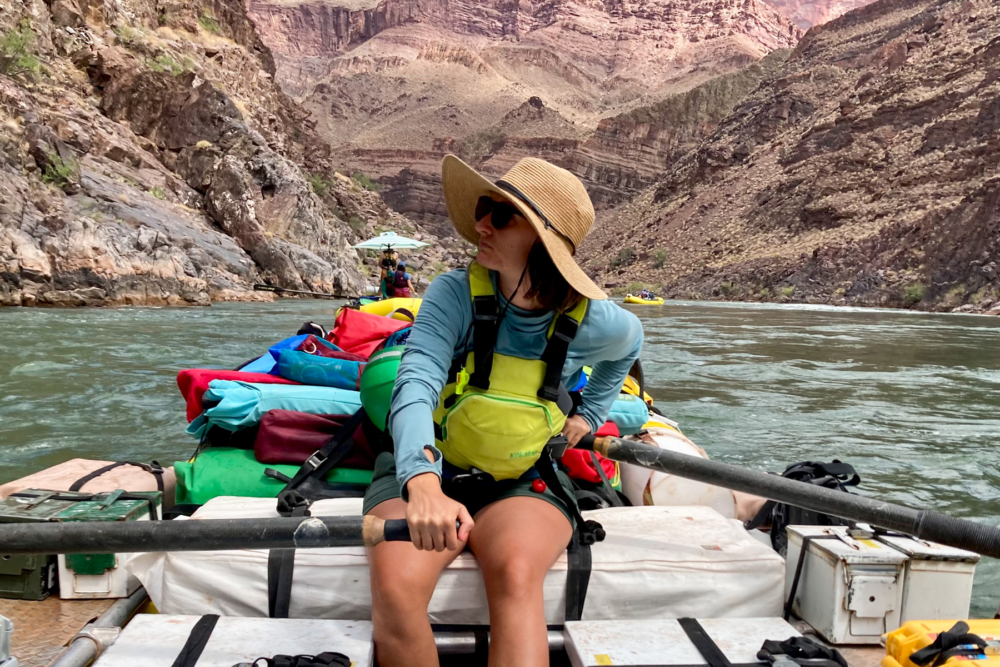
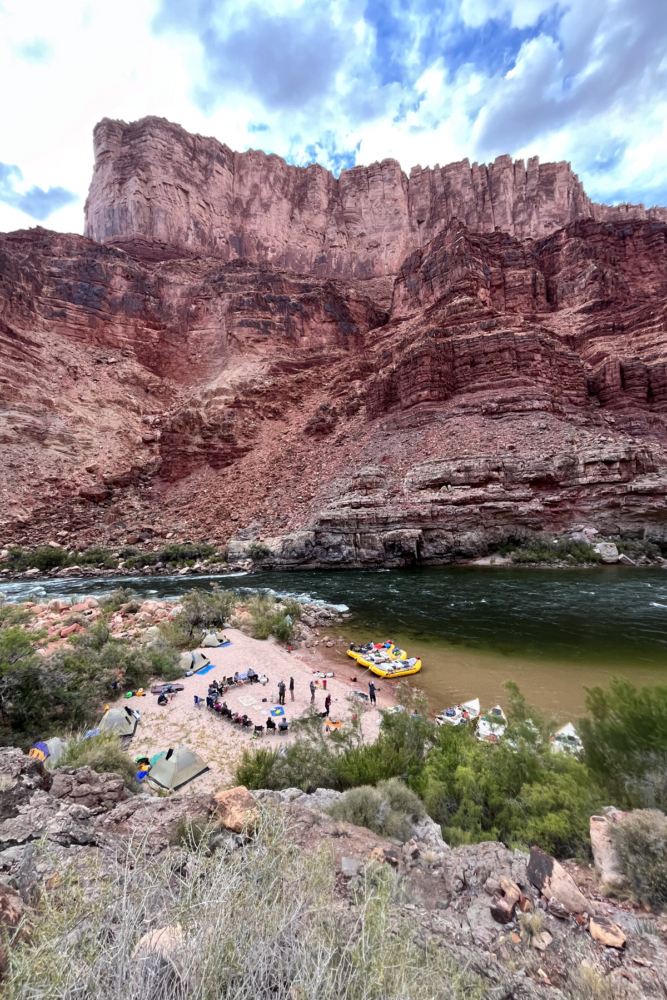
Somewhere on the plateau climbing away from the take-out, our laughter quieted. The game fizzled. Instead of a web of human engagement, we had unwittingly devolved into nine independent entities with our own personal light-up voids.
Sometimes, I am better at postponing the inevitable onslaught of notifications. There are times when my phone feels so irrelevant on the last day of a trip, I forget it in the recesses of my dry bag, inaccessible until I return home. Other times, worry permeates the boundary between backcountry and front, inviting me to stash my phone more accessibly. This was one of those times.
I had been expecting a few important emails, and a small part of me kept thinking about what the responses would mean for me in the coming months. The wonderings were a quiet, semi-constant presence as I rowed or cooked or stargazed, fleeting thoughts that I gently shoved aside. That is easy to do when the stars are shooting; the present moment is effortlessly accessible in a river canyon.
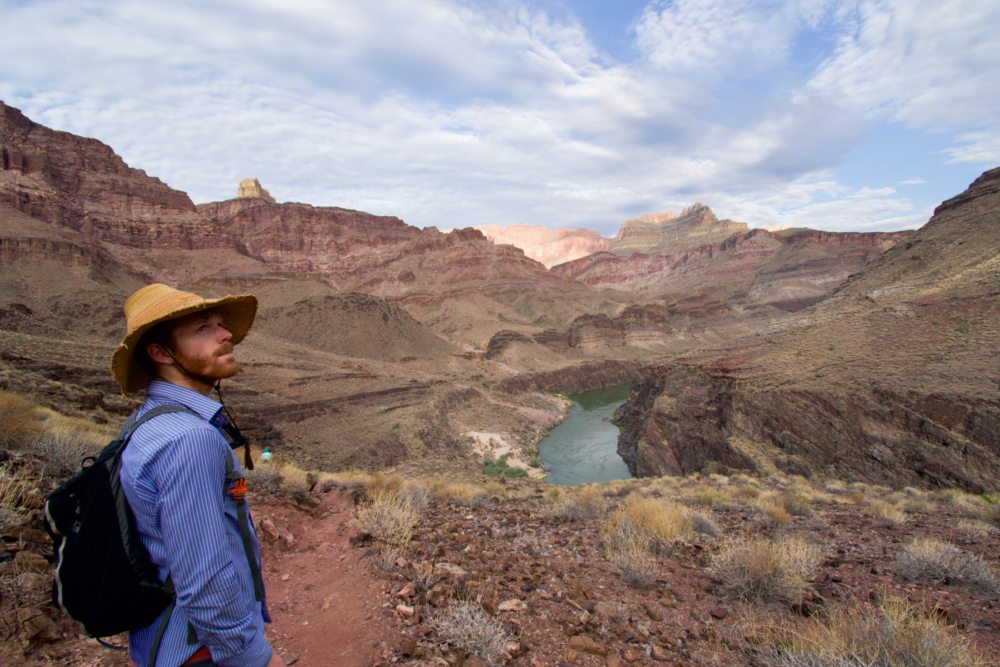
I wondered instead about layered rocks, flitting birds, blooming wildflowers, and, importantly, the people sitting next to me. I felt the breeze, and the ease; the settling of my heart rate. Contentment, wonder, and awe washed over me.
On the water, I had felt strong, competent, appreciated—a river will do that to me.
I wanted to hold on to those feelings as we drove away from the place that fostered them. Without the game’s distraction, the sound of my thoughts became louder, and my curiosity (that’s a nice word for anxiety, I think) won out over my fleeting self-control. I powered on my phone.
There was so much junk and none of it mattered, but all of it fought for my attention. Suddenly, and vehemently, I hated the person who had opened her inbox. With the press of a button, I went from competent to green, strong to crumbling. Worry flooded through me. My leg incessantly bobbed up and down.

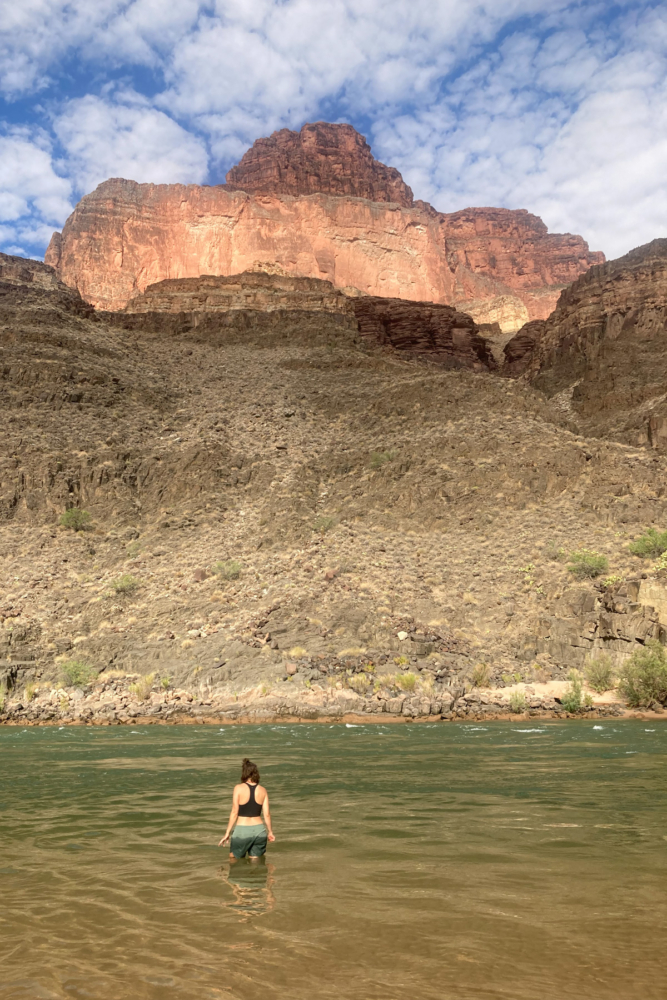
I am not unique. The attention economy has made sure of that. Our brains are merely getting hijacked in precisely the way app designers envisioned. The red notification bubbles, the dopamine hits, the ubiquity of urgency—they drag us easily and wholly away from the people we’re sitting next to. There is so much noise, and it seems to perpetually ratchet up. It’s no wonder we crave time away.
In the days following our river trip, I thought about the nuance of re-entry. Yes, there was the familiar pit of overwhelm that settled deeply from the sudden storm of accumulated tasks that needed my attention. That will always be true. I was struck more by how adrift and purposeless I felt. I sent emails, I wrote pitches, I filed stories. But what was I doing? Why was I doing it? Was I growing? Was I happy? Was I succeeding?
Success on the river is easy to measure. The objective is clear. I know everything that needs to happen to get off the beach. I know where every piece of gear lives on my boat and I know the direction of pull on my straps. I know how to row a boat (although I am constantly learning). There’s a predictability to the tasks each day.
Of course, there are varying degrees of success for every line, every meal, every plan B, but at the end of the day, I can easily distill the success of a day to one question: Did I go downstream?
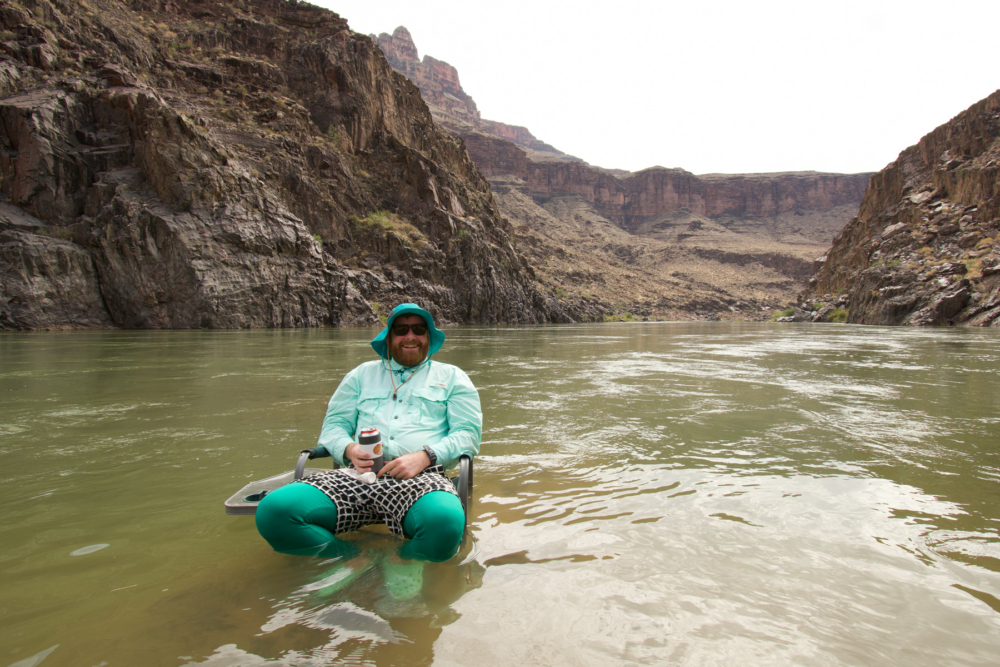
In the front country, I struggle to know if I am succeeding. (As if success is a place you arrive at.) More accurately, I struggle to know if I am living well, if I am living a good life. Sure, I can measure my life by capitalistic milestones: my bank statements or property acquisitions. I could define myself by my career, as we often do, or by prescribed life achievements—degrees, marriage, kids.
When I catch myself struggling to know if I am doing life right, I like turning to the Greek philosophers.
Socrates believed the good life was achieved through self-examination. Epicurus believed the good life was one characterized by pleasure. Aristotle believed virtue was central to the good life. He believed we truly flourish when we engage in activities that are in line with our values.
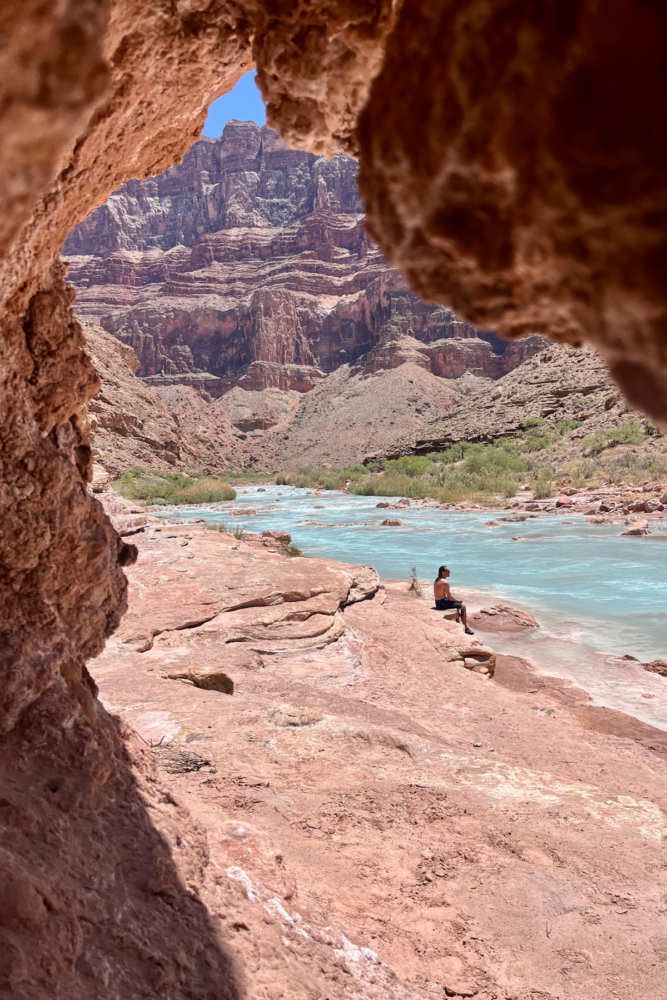
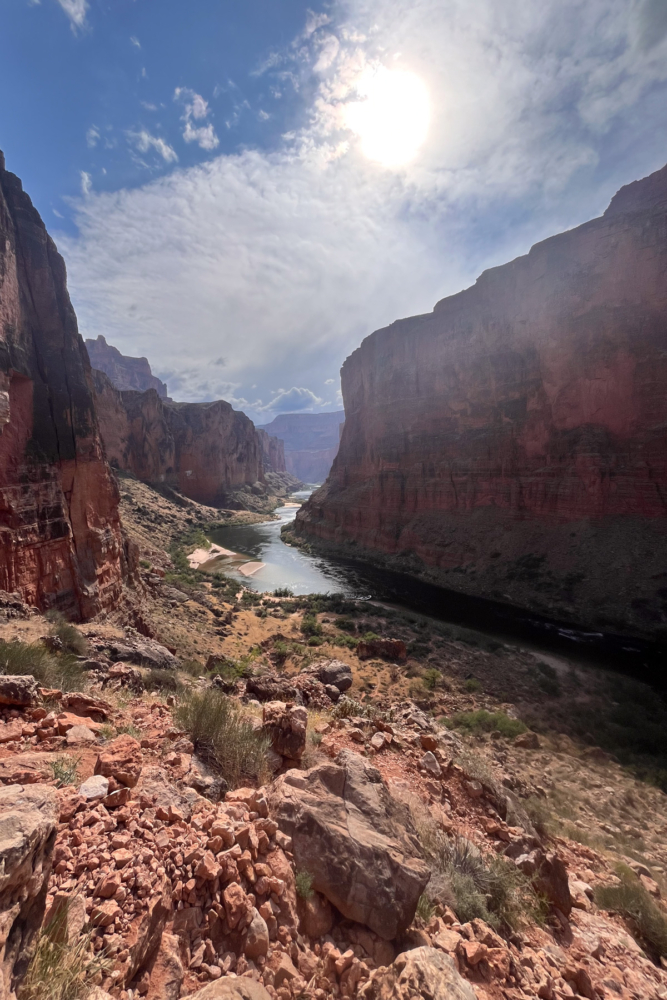
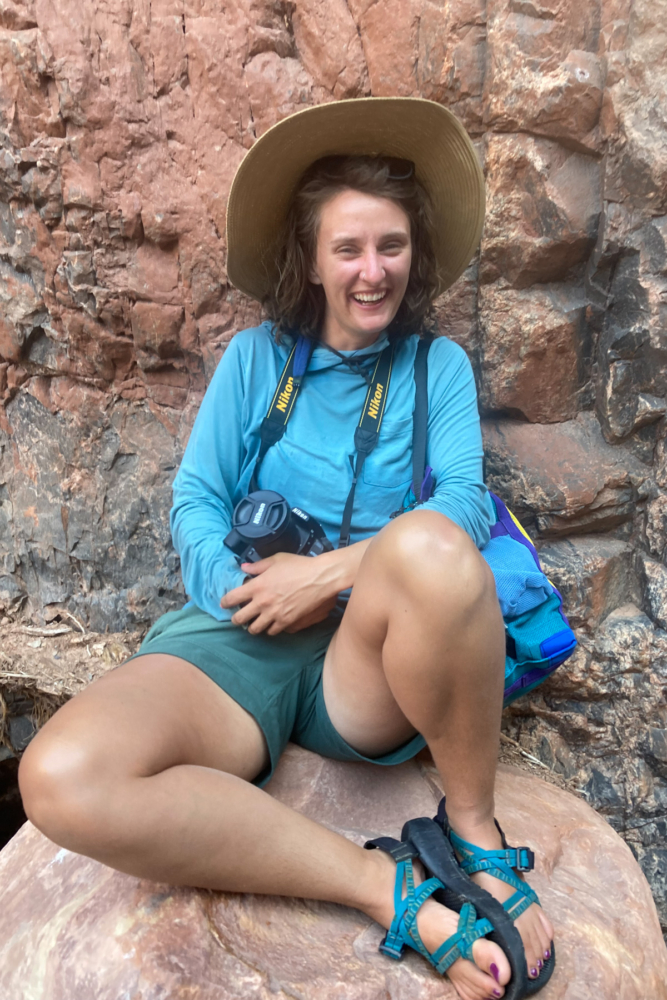
I think everyone experiences a little of what Epicurus celebrated when on the water. Pure joy, and some amount of luxury—the lazy floats, stretching out in your camp chair at the end of the day, cold beverage in hand, the sound of the river drifting by while you dig your feet into the warm sand. But I also appreciate river time because there is a spaciousness to the days which creates time for what Socrates deemed necessary. I have time to examine if I’m living the way I want to be. I have time to think about myself, my life and my choices.
It’s Aristotle that feels most potent, though. His approach helps me move away from defining my life by milestones. His approach helps me think about success in terms of how I am showing up as a human: as a friend, partner, leader, or team member. When I leave the canyon confines, I want to hold onto those ways of being.
Re-entry is hard. It’s easy to slip back into stress. I don’t know how to completely eliminate the struggle of returning, I only know what I have since tried in order to lessen the shock and stay more connected to the river version of myself. I bury my phone in order to reintegrate more slowly. I don’t allow myself to check my email until I am back at my desk and I’ve started a work day. This helps me stay grounded in the present moment until I am actually back at work. I invite my friends to do the same. There are plenty of non-work related tasks that will need doing, why pile on? Save work for the work week.
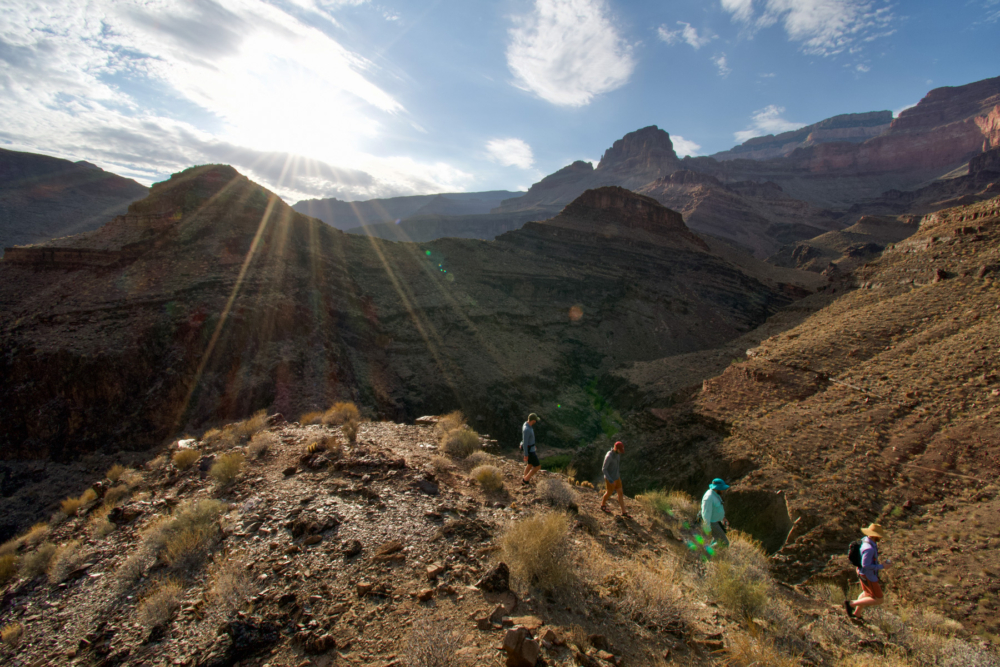
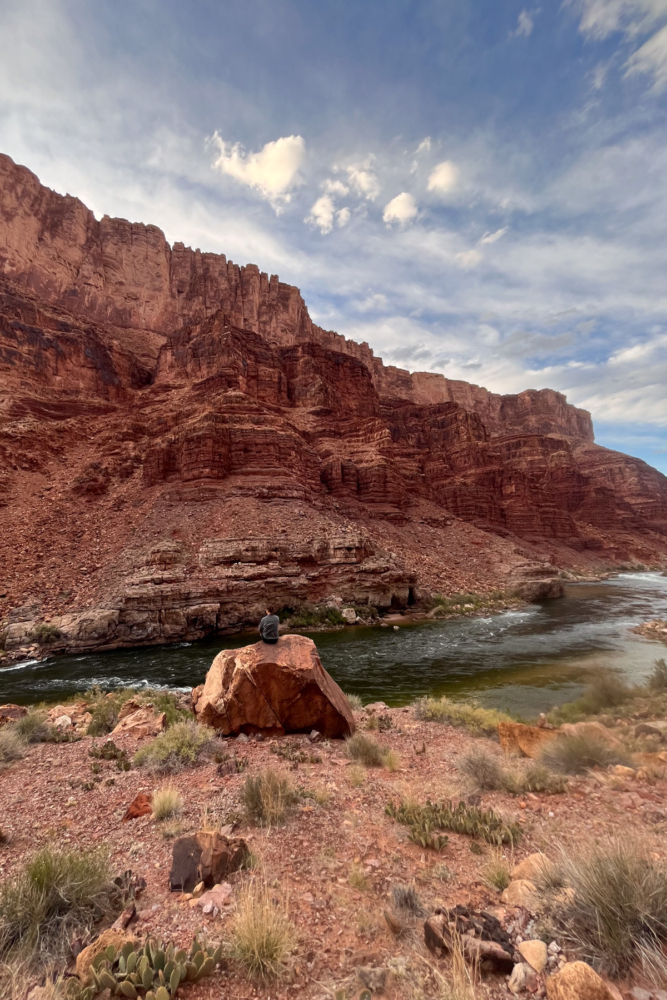
When I find myself drifting further from the version of me I loved on the river, I try to remind myself that I don’t have to find my worth in the accomplishment of tasks. I do not have to find my value in my professional accomplishments (or lack thereof). I can find success—I can live a good life—by living in accordance with my values. I can prioritize virtues that matter to me: creativity, empathy, curiosity and compassion.
Of course there’s no one, single way to define a good life or a life well lived. But I like myself most when I’m on the water. I’m closest to achieving a sense of peace when I’m in wild spaces. So when the anxiety starts creeping in, when I start to wallow, I try to take a deep breath and ask myself: did I feel the breeze today? Did I feel the sunshine on my face? Did I act with compassion? Did I have wonder? Did I show up with kindness?
Did I go downstream?
I can set an angle and row. Or I can drift lazily. Either way, I don’t need to make it to the take-out to be living well. In fact, I would rather not.
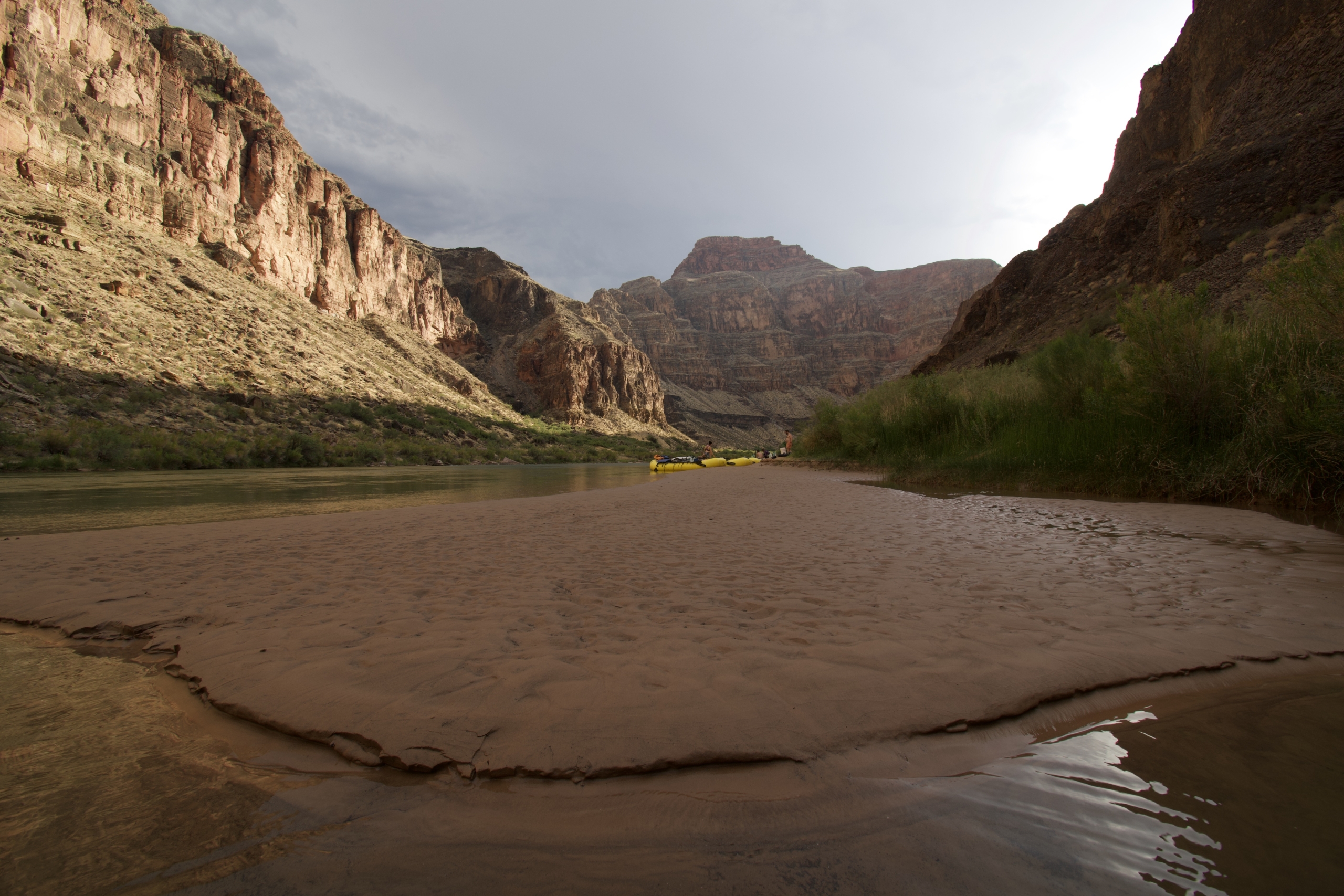
***